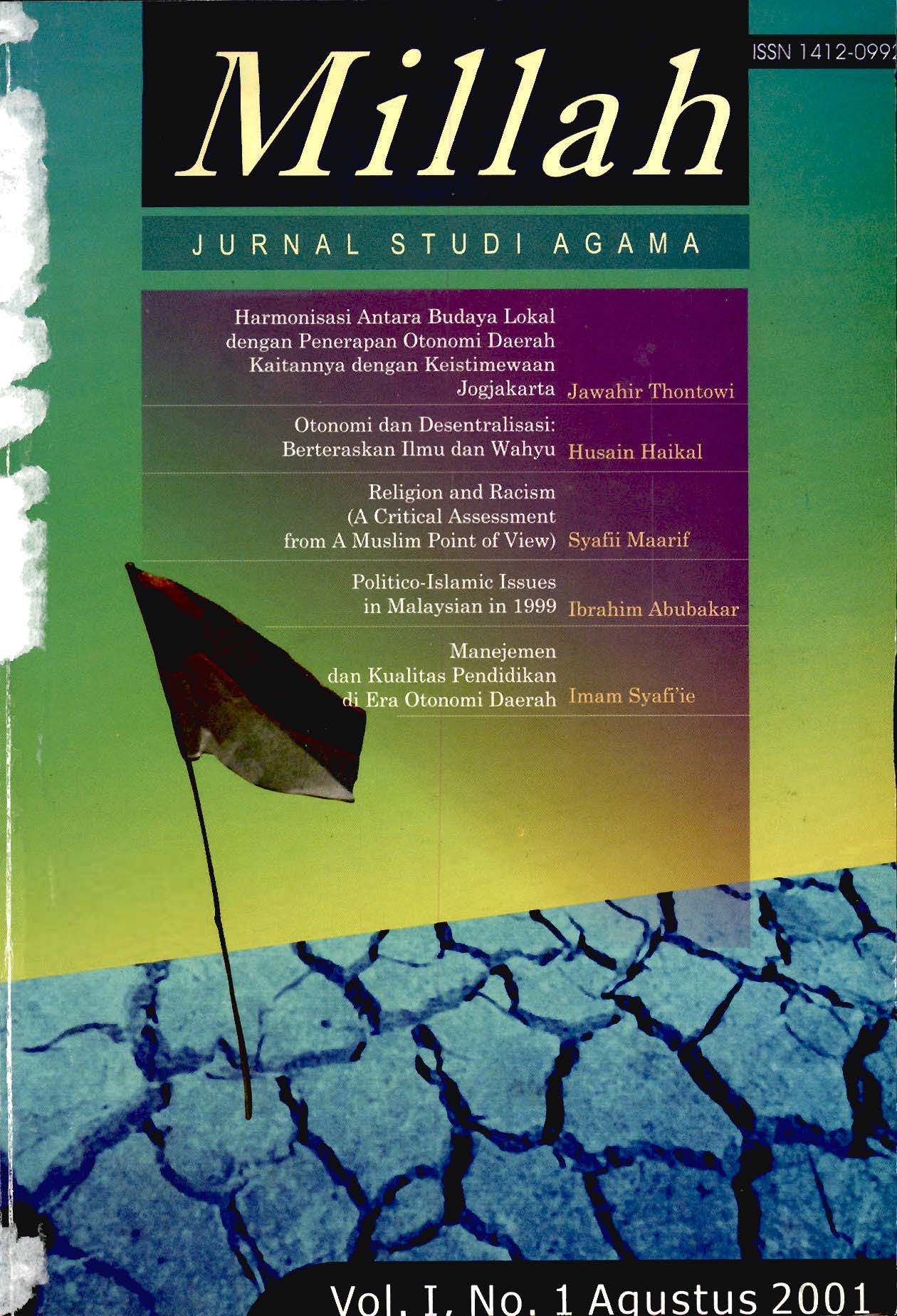Main Article Content
Abstract
This article explores the relationship between Islam and communism in Indonesia, which could be learnt from the political-ideological struggle of Masyumi and PKI (Indonesian Communist Party) in the parliamentary democracy era. The ideological discourse of Masyumi on the Communism was supported by ideological setting when its establishment in the revolution nature and the politic ideological competition after the proclamation of independence on August 17, 1945, and the international situation of the Cold War. The nature of ideological setting was translated in the explaining system such as ideological interpretation of Islam by comparing Islamic superiority over capitalism and communism; religious-socialism and Marxian-socialism issues; and the fatwa (legal decisions) of anti-communism that crystallized in the Masyumi factions when they faced the communism issues.
Article Details
Authors retain copyright and grant the journal right of first publication with the work simultaneously licensed under a Creative Commons Attribution (CC-BY-SA) 4.0 License that allows others to share the work with an acknowledgment of the work’s authorship and initial publication in this journal.




